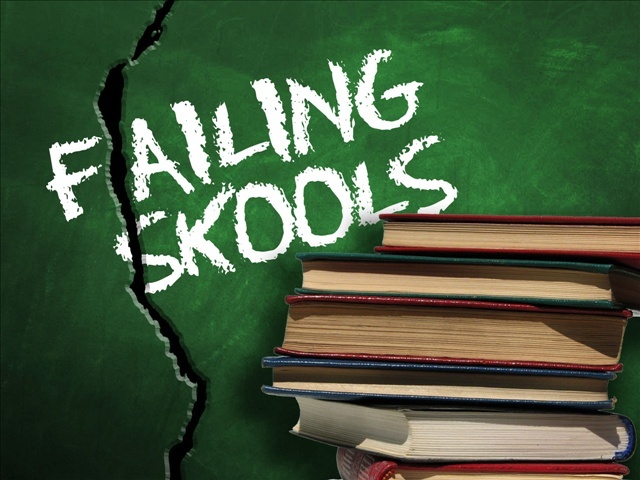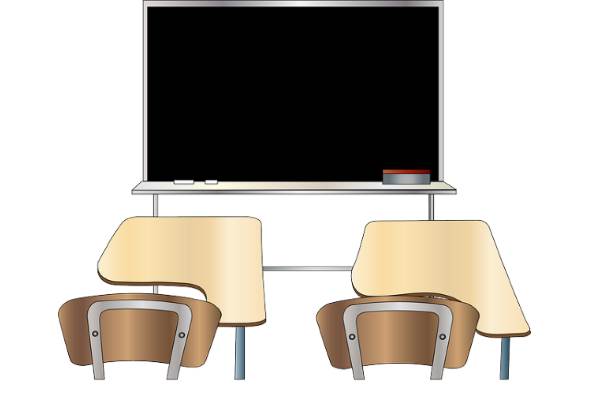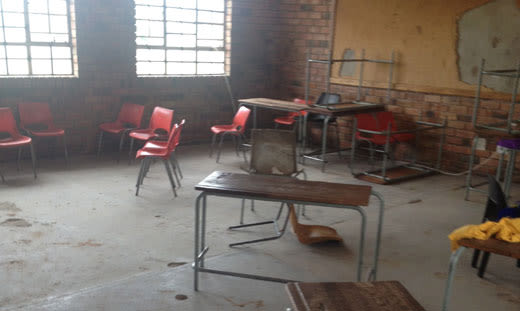In a South African context, where most of the schooling system is, to put it mildly, a mess, the demand that every child attend a school, no matter where it is or how it malfunctions, is ridiculous. But this is the demand of often ill-informed individuals in and outside the departments of education when confronted with what now seems to be labeled “un-schooling” or, more correctly, alternative education.
The response from many of those who condemn parents who have removed their children from school ignores the reality on the ground and the wealth of ideas available from many educational thinkers. It is from these thinkers that many homeschoolers draw their inspiration and, to provide social interaction for their children, often create alternative “schools”.
Behind both these developments is an agreement that established schooling systems, by and large, often cripple rather than cultivate the innate potential of children.
Rather than have students settle for being sediment in the bottom of a stagnant pool, they should be encouraged to think about alternatives for a better society; about progress and advancement. Only well-informed critical thinkers would be capable of this and this is what lies behind much of the support for “un-schooling”.
But given the choices faced by most parents concerned about education and the future for their children, it is little wonder that there is a growing movement away from established schools. For example, although corporal punishment is now outlawed, it continues to be seen as an essential part of the disciplinary regime for children.
Yet even in the absence of the cane or strap, the “blank slate/banking education” approach, governed by arbitrary timetables, kills initiative and teaches that might is ultimately right. This seems reason enough to remove a child from school.
That this is happening has resulted in claims that “un-schooling” is illegal. It is not. It only becomes illegal if no other form of education is provided. 
It is widely recognized that the isolation of the home means that homeschooled children may be deprived of social contact. This, in turn, led to homeschoolers coming together to, in some cases, establish small alternative “un-schools”.
In South Africa a number of “un-schoolers” either meet on a regular, even daily, basis, studying and working together, or they arrange more informal contacts. And, where such alternative schools exist, they are often less costly on parental pockets than local state schools. And they tend to involve much more parental time.
So to demand compulsory state schooling for all children, especially given the condition of the South African system, is irresponsible. Instead, the education departments and the supporters of this form of universal schooling might do well to look at alternatives to what is, in most cases, an ongoing disaster.
The philosophy of unschooling
This method of homeschooling eschews a formal curriculum. Instead, it focuses on creating a rich learning environment with parents acting as facilitators rather than teachers, sparking and nurturing children’s interests. The basic philosophy is that natural curiosity will inspire learning, which then reinforces the idea that learning is a lifelong habit of the mind rather than something that occurs within formal school buildings and is limited to targeted outcomes.
While the Department of Education does not keep specific numbers on the unschooled population, those within the movement believe that “un-schoolers” account for about 10 percent of those who are homeschooled.
Supporters of the movement say that when left to their own devices in a fruitful environment, children not only understand educational content but also tend to engage the world creatively, learn self-direction and become highly motivated learners.
Violence in schools:
The effects of school violence on students are both physical and psychological in nature. They range from injury to depression and contemplating suicide. School violence can also impact learning. Students who experience fear at school are likely to have difficulty concentrating on their education.
School violence is any activity that can create a disturbance in an educational system. It’s not just school shootings. It includes verbal and physical altercations. Itis also bullying through electronic means or social media, threats, weapon use, or gang activity.
A debatable fact is that researchers say that the level of violence in South Africa’s schools has not increased in recent years and has remained fairly stable, although it remains high. In addition, much of the violence that takes place in schools has been going on for generations and is mostly never reported.
But it is widespread and manifesting at a shocking rate. And banning corporal punishment is not the answer – in fact, it is part of the problem.
School violence is not limited to the school premises. “It includes violence that occurs when walking to or from school, where the school has no control over what happens.
“Much of the violence includes learner-on-learner violence, gender aggression, bumping and shouting, and sometimes more serious bullying where a group of kids would extort others by, say, blocking the gate unless they pay – these things are quite endemic in our schools.
“Fifty percent of children have been hit by a teacher at school. So what we have is a social system where we resort to violence to resolve problems. An argument from those against corporal punishment says that many parents also use corporal punishment to try to discipline kids, but that communicates a message that violence is okay and this is how we solve problems.” The fact of the matter is that the new generation lacks discipline measured against those who did get punished for failing a test or misbehaving.
Social media assists us today in seeing a growing and alarming rate school violence escalates, where we previously did not have this platform or even the technology to capture the many wrongdoings from scholars and teachers. Hence, this should then be part of your decision making on either unschooling your kids or keeping them in the schools itself.
But, the reality is that we live in a violent society. Therefore, the violence seen at schools accentuates the dictum that schools are in fact the microcosm of society.
Basic education is failing the economy
The desire and expectation of any parent, society or government are that children should receive a good education to enhance their personal development and transform them into good citizens.

Such aspirations are encapsulated in the belief that the rich intellectual heritage derived from the accumulation of human capital is not only crucial for individual progression but is also vital for long-term economic growth and development.
For this to be possible, it is crucial to get the foundation phase right. Therefore, good-quality basic education is one of the non-negotiables, as higher or tertiary education needs sound primary and secondary education to build on.
In South Africa, the advent of democracy triggered significant reforms to the management, governance, curriculum redesign and restructuring, and funding of education.
Education should provide a way out of the poverty trap, but the ability of the South African education system to act as a reliable conduit for children out of poverty has been limited.
For instance, South Africa has the worst education system of all middle-income countries that participate in cross-national assessments of educational achievement. The latest results available, from the National School Effectiveness Study, which tests numeracy and literacy, show that South Africa’s mean scores for literacy in grade three and grade four were 19% and 27% respectively. The means score for numeracy in these grades in other countries were 28% and 35% respectively.
The Trends in International Mathematics and Science Study, a quadrennial test conducted in 57 countries, ranks South Africa almost last in its various rankings, even though its scores have been improving.
The results show that 27% of our pupils who have attended school for six years cannot read, compared with 4% in Tanzania and 19% in Zimbabwe.
After five years of schooling, about 50% of South African pupils cannot do basic calculations, such as dividing 24 by three. This is hardly surprising when 60% of maths teachers, teaching from grades one to six, failed to pass tests for maths at the grade level, according to the Southern and Eastern African Consortium for Monitoring Education Quality.
Under such circumstances, blaming the failure of the system on inadequate financial resources is probably the most natural thing to do, but that misses the picture completely.
Per capita, South Africa spends more on education than most advanced economies such as the United States and the United Kingdom, yet its primary education system was rated 126th out of 138 countries in the World Economic Forum 2016-2017 Global Competitiveness Report.
26 August 2019 – Bill Harington













